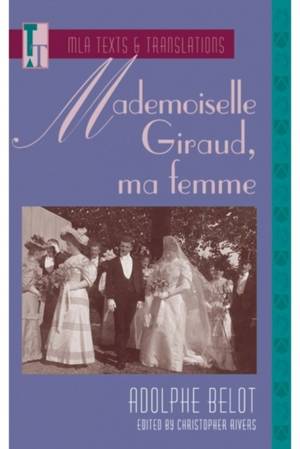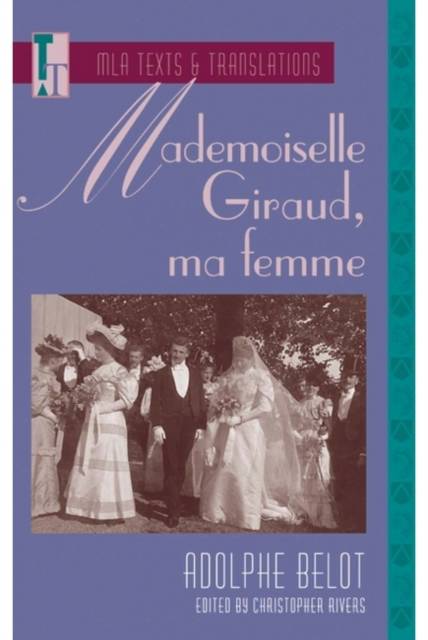
- Retrait gratuit dans votre magasin Club
- 7.000.000 titres dans notre catalogue
- Payer en toute sécurité
- Toujours un magasin près de chez vous
- Retrait gratuit dans votre magasin Club
- 7.000.0000 titres dans notre catalogue
- Payer en toute sécurité
- Toujours un magasin près de chez vous
Description
Adolphe Belot was the envy of his contemporaries Émile Zola and Gustave Flaubert: his books, unlike theirs, were best-sellers. He specialized in popular fiction that provided readers with just the right mix of salaciousness and propriety. (Under the initials A. B. he dispensed entirely with propriety.)
The sensational Mademoiselle Giraud, ma femme (published in 1870 with a preface by Zola) tells of the suffering of a naive young man whose new bride will not agree to consummate the marriage. Eventually he learns from an acquaintance, to his amazement, that their wives are lovers. In the pitched battle between husband and wife, the sexes are evenly matched--until the end.
Christopher Rivers argues in his introduction that the protagonist's homophobic attitude toward lesbianism is ironically linked to his intimate homosocial bonds with men. This example of commercial fiction, Rivers argues, reveals tensions in nineteenth-century French society not apparent in canonical works of high culture.
Spécifications
Parties prenantes
- Auteur(s) :
- Editeur:
Contenu
- Nombre de pages :
- 256
- Collection :
Caractéristiques
- EAN:
- 9780873527989
- Date de parution :
- 01-01-03
- Format:
- Livre broché
- Format numérique:
- Trade paperback (VS)
- Dimensions :
- 143 mm x 218 mm
- Poids :
- 294 g

Les avis
Nous publions uniquement les avis qui respectent les conditions requises. Consultez nos conditions pour les avis.






